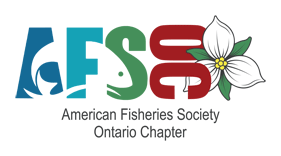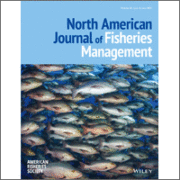Do Carbonated Beverages Reduce Bleeding from Gill Injuries in Angled Northern Pike?
AUTHOR(S): Alexandria T. Trahan, Auston D. Chhor, Michael J. Lawrence, Jacob W. Brownscombe, Daniel M. Glassman, Connor H. Reid, Alice E. I. Abrams, Andy J. Danylchuk and Steven J. Cooke
CITATION:
Trahan A.T., A.D. Chhor, M.J. Lawrence, J.W. Brownscombe, D.M. Glassman, C.H. Reid, A.E I. Abrams, A.J. Danylchuk and S.J. Cooke. 2021. Do carbonated beverages reduce bleeding from gill injuries in angled Northern Pike? N. Am. J. Fish. Manag. 41(3):639-649. https://doi.org/10.1002/nafm.10571
ABSTRACT:
The premise of catch‐and‐release recreational angling is that postrelease survival is high. Therefore, it is common for anglers, management agencies, and conservation organizations to share information on handling practices and other strategies that are believed to improve the welfare and survival of fish that are released. A recent surge in popularity has sensationalized the use of carbonated beverages to treat bleeding fish—an intervention that is purported to stop bleeding but has yet to be validated scientifically. We captured Northern Pike Esox lucius via hook and line and experimentally injured their gills in a standardized manner. Gill injuries were treated with Mountain Dew, Coca‐Cola, or carbonated lake water. The duration and intensity of bleeding as well as overall blood loss (using gill color as a proxy) were observed while the fish were held in a lake water bath. As a control, we used a group of experimentally injured fish that did not have liquid poured over their gills before the observation period. All treatments and the control were conducted at two different water temperatures (11–18°C and 24–27°C) to determine whether the effects of pouring carbonated beverages over injured gills are seasonally dependent. When compared to the control, we found that the duration and intensity of bleeding increased regardless of the type of carbonated beverage used in this study, and there was no effect of season. Use of chilled versus ambient‐temperature beverages similarly had no influence on outcomes. As such, there is no scientific evidence to support the use of carbonated beverages for reducing or stopping blood loss in fish that receive gill injuries during recreational angling based on the context studied here. Our study reinforces the need to scientifically test angler anecdotes and theories regarding best practices for catch‐and‐release fishing.
FULL TEXT – Trahan et al.



